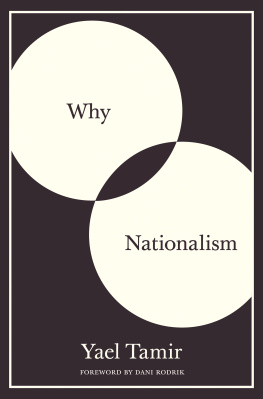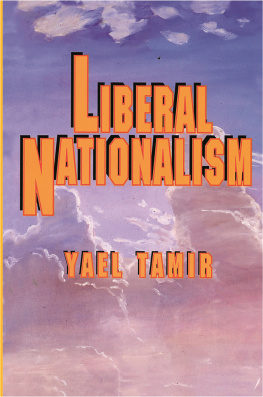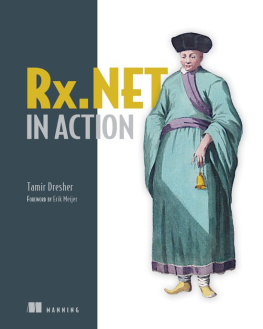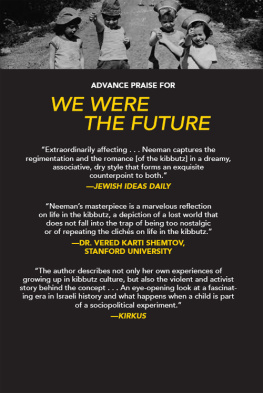Yael Tamir - Why Nationalism
Here you can read online Yael Tamir - Why Nationalism full text of the book (entire story) in english for free. Download pdf and epub, get meaning, cover and reviews about this ebook. year: 2020, publisher: Princeton University Press, genre: Politics. Description of the work, (preface) as well as reviews are available. Best literature library LitArk.com created for fans of good reading and offers a wide selection of genres:
Romance novel
Science fiction
Adventure
Detective
Science
History
Home and family
Prose
Art
Politics
Computer
Non-fiction
Religion
Business
Children
Humor
Choose a favorite category and find really read worthwhile books. Enjoy immersion in the world of imagination, feel the emotions of the characters or learn something new for yourself, make an fascinating discovery.
- Book:Why Nationalism
- Author:
- Publisher:Princeton University Press
- Genre:
- Year:2020
- Rating:3 / 5
- Favourites:Add to favourites
- Your mark:
- 60
- 1
- 2
- 3
- 4
- 5
Why Nationalism: summary, description and annotation
We offer to read an annotation, description, summary or preface (depends on what the author of the book "Why Nationalism" wrote himself). If you haven't found the necessary information about the book — write in the comments, we will try to find it.
Why Nationalism — read online for free the complete book (whole text) full work
Below is the text of the book, divided by pages. System saving the place of the last page read, allows you to conveniently read the book "Why Nationalism" online for free, without having to search again every time where you left off. Put a bookmark, and you can go to the page where you finished reading at any time.
Font size:
Interval:
Bookmark:


Yael Tamir
With a new preface by the author
Princeton University Press
Princeton and Oxford
Copyright 2019 by Princeton University Press
Preface to the paperback edition copyright 2020 by
Princeton University Press
Published by Princeton University Press
41 William Street, Princeton, New Jersey 08540
6 Oxford Street, Woodstock, Oxfordshire OX20 1TR
press.princeton.edu
All Rights Reserved
Library of Congress Control Number: 2020943754
First paperback edition, 2020
Paperback ISBN 9780691210780
Cloth ISBN 9780691190105
British Library Cataloging-in-Publication Data is available
Editorial: Rob Tempio and Matt Rohal
Production Editorial: Mark Bellis
Text Design: Leslie Flis
Cover Design: Layla Mac Rory
This book is dedicated with much love and admiration to my great teacher and mentor Sir Isaiah Berlin
I am writing this preface during the days of the COVID-19 pandemic, and my thoughts are therefore traveling back and forth from the distressing reality outside my sheltered study to the theoretical questions at the heart of this book. I cannot but ask myself how the one influences the other. I therefore end this section with some preliminary reflections on nationalism in the age of coronavirus.
It is impossible to predict where the world is heading, yet human nature is unlikely to change; hence it is quite safe to assume that questions of identity, self-expression, and self-rule will remain central to our personal and national ways of thinking. The recent coronavirus pandemic teaches us an interesting lesson: even in times of a global crisis, people tend to segregate themselves along national lines. Headlines these days show the global spread of the virus but then point to the disorganized nature of the political system in Italy, ponder about German obedience, compare the Chinese way of doing things with the American way, and wonder about the British decision to put personal liberty before public health. Whatever the medical and political conclusions are, the correlation between national cultures and the structure and behavior of political institutions is more evident than ever.
The pandemic forced nation-states to step up to the challenge of offering functional solutions to a fast-spreading sense of helplessness. Consequently, the pendulum swinging between the national and the global poles comes closer to the national one. This does not mean that international cooperation will be put on hold. Quite the contrary. Nations share knowledge and help each other when necessary, but their focus will be the best interest of their own citizens. We are then in an age of nationalism, and attempts to rethink nationalism are more urgent than ever.
It has been over a year since this book was first published, and the political reality around the globe has taught us that the issues raised are going to stay with us for the foreseeable future. The crisis of liberalism and the return of nationalism is on everyones mind. While liberals are on the defensive, nationalists feel safe that they have succeeded in dropping an anchor in the troubled political waters.
Leaders and social movements no longer shy away from using the language of nationalism. In fact, taking the national stand, more often than not, is seen as a virtue rather than a vice. Donald Trump did not miss this change of hearts, openly defining himself as a nationalist. A globalist, he said, is a person that wants the globe to do well, frankly, not caring about our country so much. And you know what? We cant have that. You know, they have a wordits sort of became old-fashionedits called a nationalist. And I say, really, were not supposed to use that word. You know what I am? Im a nationalist, okay? Im a nationalist. Nationalist. Nothing wrong. Use that word. Use that word. His statement met harsh criticism. Some tried to claim that unlike Europe, the American ethos is the exact opposite of nationalism: that in its early days (before the French Revolution) America developed its identity on the basis of universal principles characteristic of the Enlightenment rather than on the basis of particular national traits or qualities.
We believe, Kim Holmes of the Heritage Foundation writes, that Americans are different because our creed is both universal and exceptional at the same time. We are exceptional in the unique way we apply our universal principles. It doesnt necessarily mean that we are better than other peoples, though I think probably most Americans do believe they are. Its not only about bragging rights, she continues, but rather, a statement of historical fact that there is something truly different and unique about the United States which becomes lost when talking in terms of nationalism.
Contrary to what many believe, the problem with (or the power of) nationalism is not its particularism but the ability to spread its influence across national borders. Both benevolent and malignant forms of nationalism are contagious. Fears regarding the spread of destructive nationalism have already been realized. In 2018 and 2019, we saw a massive growth in hate crimes and xenophobia. By the end of 2018, the European Unions Fundamental Rights Agency found that 89 percent of Jews living in Austria, Belgium, Denmark, Germany, France, Hungary, Italy, the Netherlands, Poland, Spain, Sweden, and the United Kingdom felt that anti-Semitism had increased in their countries over the past decade and believed that it presents a serious social challenge. Almost half of Jews worry about being insulted or harassed in public, and more than a third fear being physically attacked.
Islamophobia has also spread across Europe and the United States. In March 2019, the Organisation of Islamic Cooperation (OIC) published its twelfth observatory report, which lists anti-Muslim events between June 2018 and February 2019. Muslims, the report argues, are among the first victims of the rise of far-right extremism in Europe. In Austria, the Office for Documenting Islamophobia and Anti-Muslim Racism recorded an increase of approximately 74 percent in documented anti-Muslim acts. In France, the Collectif contre lislamophobie en France reported an increase of 52 percent in Islamophobic incidents. In the United Kingdom, the number of cases recorded in official statistics rose by 17 percent. Finally, in the Netherlands, the Anti-discrimination Agencies announced that 91 percent of a total of 151 incidents of religious discrimination reported to the police were related to Muslims. Women constitute the majority of the victims of Islamophobia, especially when they wear headscarves. Attacks against Muslim women range from verbal aggressions, denial of access to services, forced removal of the headscarf, and go as far as attempted rape and physical attacks. In the United States, anti-immigrant, anti-Muslim, and anti-Semitic attitudes have become prevalent. Under the auspices of Trump, hate speech, racial hostility, and ethnic violence are spreading.
The brutal killing of George Floyd by a white police officer in Minneapolis instigated the most recent outcries against racism. Race relations became as volatile as they were in the 1960s. Yet the rage over Floyds murder marks a turning point: people were drawn to the streets, and suddenly more than one national voice echoed in the public sphere. Hatred and xenophobia met a firm demand for acceptance and inclusion. The two forms of nationalismone conservative and exclusive, one progressive and inclusiveopenly struggle for dominance. This clash is most obviously expressed by the toppling of statues. In the United States, protesters first focused on Confederate monuments. But they have since cast a wider eye, including at former presidents like Andrew Jackson, a slave owner whose policies forced Native Americans from their land, and Woodrow Wilson, the architect of the League of Nations whose legacy has faced increasing scrutiny for his racist views and his resegregation of the federal work force. That very day, the lower house of the Mississippi state legislature passed a resolution that would remove the Confederate emblemnow viewed by many as a racist symbolfrom the state flag.
Font size:
Interval:
Bookmark:
Similar books «Why Nationalism»
Look at similar books to Why Nationalism. We have selected literature similar in name and meaning in the hope of providing readers with more options to find new, interesting, not yet read works.
Discussion, reviews of the book Why Nationalism and just readers' own opinions. Leave your comments, write what you think about the work, its meaning or the main characters. Specify what exactly you liked and what you didn't like, and why you think so.













